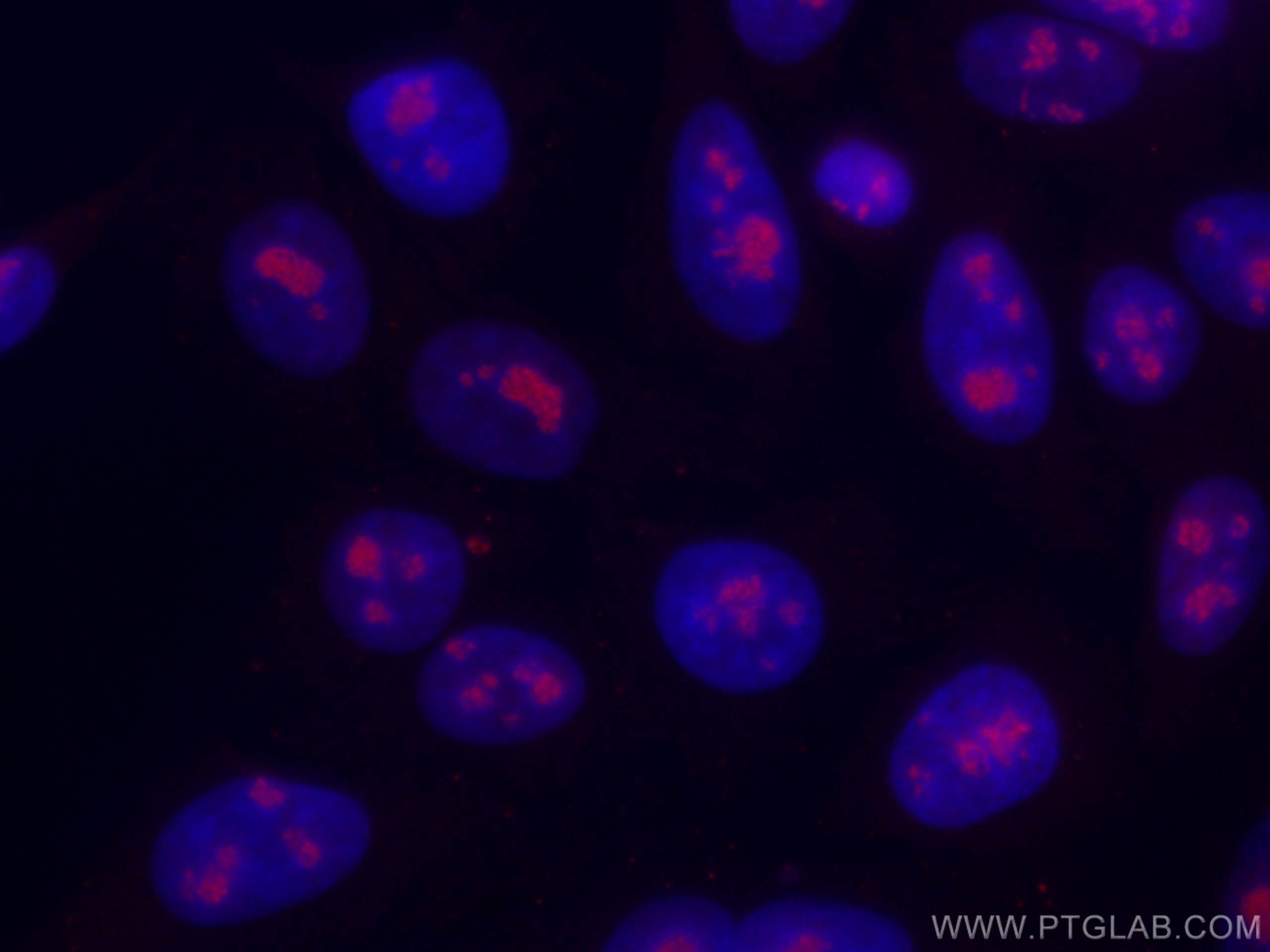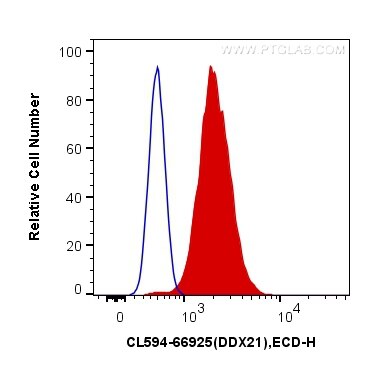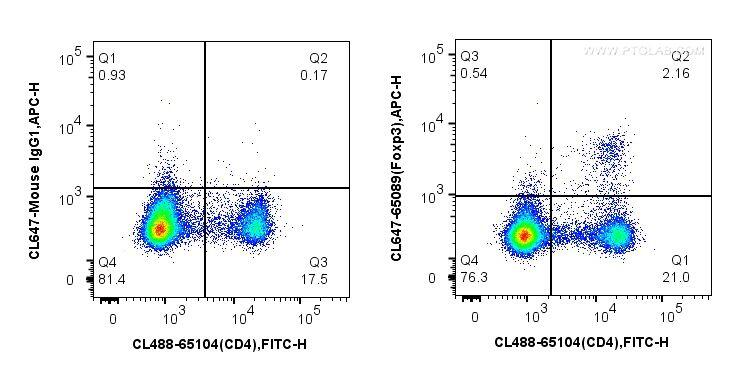DDX21 Monoklonaler Antikörper
DDX21 Monoklonal Antikörper für FC (Intra), IF
Wirt / Isotyp
Maus / IgG1
Getestete Reaktivität
human
Anwendung
IF, FC (Intra)
Konjugation
CoraLite®594 Fluorescent Dye
CloneNo.
1B9C8
Kat-Nr. : CL594-66925
Synonyme
Galerie der Validierungsdaten
Geprüfte Anwendungen
| Erfolgreiche Detektion in IF | HepG2-Zellen |
| Erfolgreiche Detektion in FC | HepG2-Zellen |
Empfohlene Verdünnung
| Anwendung | Verdünnung |
|---|---|
| Immunfluoreszenz (IF) | IF : 1:50-1:500 |
| Sample-dependent, check data in validation data gallery | |
Produktinformation
CL594-66925 bindet in IF, FC (Intra) DDX21 und zeigt Reaktivität mit human
| Getestete Reaktivität | human |
| Wirt / Isotyp | Maus / IgG1 |
| Klonalität | Monoklonal |
| Typ | Antikörper |
| Immunogen | DDX21 fusion protein Ag17850 |
| Vollständiger Name | DEAD (Asp-Glu-Ala-Asp) box polypeptide 21 |
| Berechnetes Molekulargewicht | 783 aa, 87 kDa |
| GenBank-Zugangsnummer | BC008071 |
| Gene symbol | DDX21 |
| Gene ID (NCBI) | 9188 |
| Konjugation | CoraLite®594 Fluorescent Dye |
| Excitation/Emission maxima wavelengths | 588 nm / 604 nm |
| Form | Liquid |
| Reinigungsmethode | Protein-G-Reinigung |
| Lagerungspuffer | BS mit 50% Glyzerin, 0,05% Proclin300, 0,5% BSA, pH 7,3. |
| Lagerungsbedingungen | Bei -20°C lagern. Vor Licht schützen. Aliquotieren ist bei -20oC Lagerung nicht notwendig. 20ul Größen enthalten 0,1% BSA. |
Hintergrundinformationen
DDX21 protein belongs to DEAD box protein family which is characterized by the conserved motif Asp-Glu-Ala-Asp (DEAD). As a putative RNA helicase, DDX21 unwinds double-stranded RNA, folds single-stranded RNA and is involved in process including ribosomal RNA biogeneis, RNA editing and general transcription. Interaction of DDX21 and c-Jun was reported in ribosomal RNA processing.
Protokolle
| Produktspezifische Protokolle | |
|---|---|
| IF protocol for CL594 DDX21 antibody CL594-66925 | Protokoll herunterladen |
| FC protocol for CL594 DDX21 antibody CL594-66925 | Protokoll herunterladen |
| Standard-Protokolle | |
|---|---|
| Klicken Sie hier, um unsere Standardprotokolle anzuzeigen |




